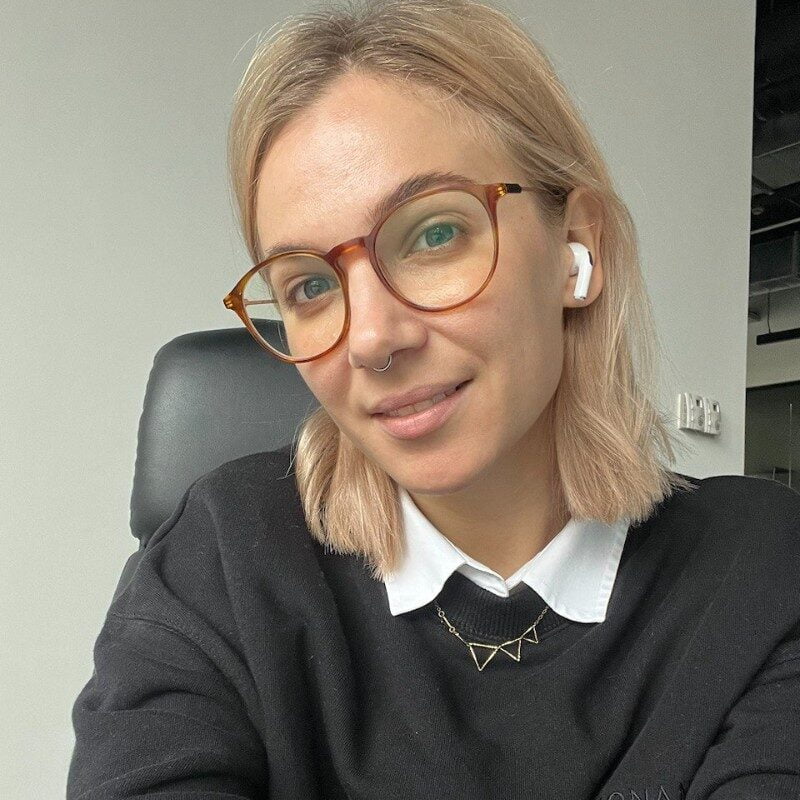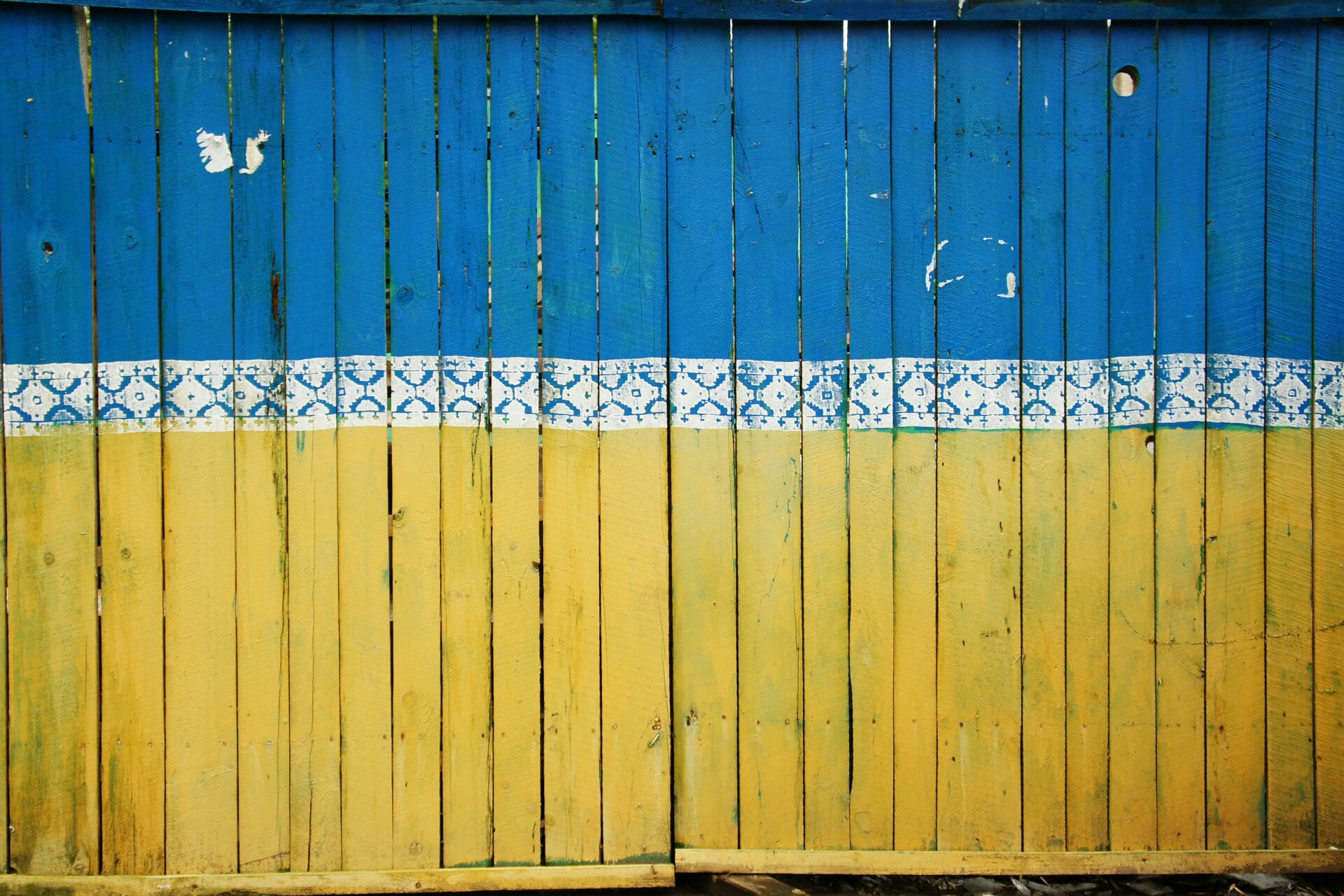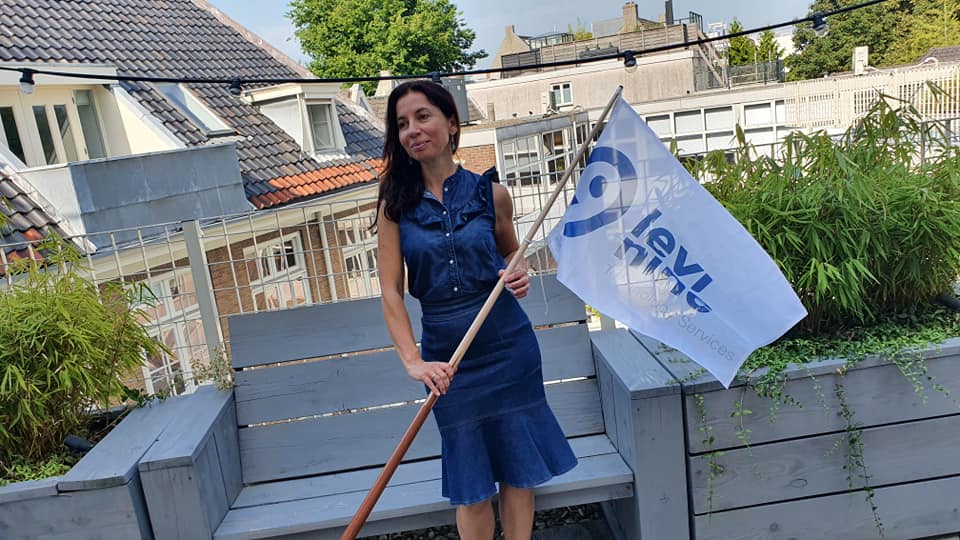Maria Popova, Project Manager at Levi9 IT company, was forced to try living abroad like thousands of other Ukrainians. However, she realized that life abroad was not for her. Having tried on a different life, she says: “I feel incurably Ukrainian.”
The desired and the real
I don’t believe in the saying “the grass is always greener on the other side,” but I am convinced that at a certain stage in life, the culture and atmosphere of another country may suit you. You fall in love with the country, feel happier, and want to realize yourself there. The very thought of commuting to work and back excites you, you appreciate the city’s architecture, surroundings, and way of life. For example, this happened to my friend who has been living in Amsterdam for a long time.
I also used to imagine myself living and working in the Netherlands. The country was already familiar to me since I often went on business trips to Amsterdam, where Levi9’s main office is located, and had many interactions with the Dutch.
I was curious to feel like a Dutchwoman, to experience life in this country, but I didn’t want to explore a new culture under such circumstances. I didn’t plan or prepare for relocation, and I am currently at peace only in Ukraine.
Ukrainians abroad also try on different lives — we have been given a somewhat cinematic opportunity to experience something different. Perhaps, for those who have never had such an experience before and never pictured themselves having a cup of coffee, let’s say, in Switzerland, life abroad might be good now. They have now received a “happy ticket” to a different life and have gained the support of foreigners who are concerned about the situation in Ukraine.
The tragedy is that the decision to temporarily move abroad was mostly driven by war and the lack of safety, not the desire to see the world. Despite this, I have noticed a great skill among many compatriots — the ability to adapt quickly and feel at home in any circumstances.
Remember yesterday
My reaction to the news of the war starting on the morning of February 24 was somewhat strange – I fell silent and responded with monosyllables, nodding along.
For me, a young person who had swallowed all of Remarque’s works at the age of 18-20, war by default was associated with horror and dark times. However, the theories from books turned out to be insufficient to be prepared for such reality.
We spent a week in western Ukraine, then my friend and I drove to Hungary, and a month and a half later, I moved to Amsterdam. I also visited a friend in Ireland and was amazed to see Ukrainian flags everywhere there.
During this time, I returned to Ukraine several times. I wanted to check my feelings – how comfortable I am here now. And coming back to Kyiv was both joyful and somewhat strange. I left my apartment in Kyiv a week before the war and moved in with my friend. Things were left unpacked, and I didn’t have time to adjust to the new place.
I’ve been somewhat of a wanderer for a long time – since the occupation of Crimea when I “lost” my home. I visited my family there, but I no longer felt at home. I thought that perhaps karma wanted to tell me something and decided to wander the world as a wanderer, experiencing other countries – Hungary, Ireland, the Netherlands.
I felt comfortable everywhere – open-minded people, incredible support from volunteers, and beautiful landscapes. You naturally and subtly adapt to new realities, but I didn’t do anything to assimilate into another country.
In the beginning, my personal growth towards this ‘new life’ was on pause. At least, that’s how I felt. I desperately wanted to go home.
Dutch people are "upgraded" Ukrainians
I wouldn’t contrast the mentalities of the inhabitants of both countries, but I would characterize the Dutch as “upgraded” Ukrainians. This is how we might be in 50-70 years. The locals are open, easy to communicate with, and won’t refuse requests. They are interested in the interlocutor, want to understand and accept their worldview, rather than being the center of their own universe. Additionally, the Dutch have a high level of emotional intelligence and an understanding of boundaries.
For example, they won’t force you to do something or interfere with advice unless you ask.
Even in conflict situations, the Dutch remain composed and confidently express their point of view. They exhibit aggression or disagreement in a cultured manner, without being domineering.
During my month in the Netherlands, I was inspired by their relaxed communication style and their curiosity about others. Although I am already quite people-oriented by nature, the Dutch helped me open my heart even more to people.
In trying to understand the reason behind such an attitude towards life, I noticed a pattern—the Dutch have a taste for it. It’s normal for them to derive pleasure, acknowledge desires, and work towards their realization. They also have no qualms about saying “no” if a proposition doesn’t suit them. Parents grant freedom of choice and don’t force their children to study law, for example, if they show an inclination for creativity. Such balance helps them enjoy life and not worry about social status.
It’s not scary to refuse a request or start something new from scratch—your parents did it, you’re doing it, and the children will continue to do so. And perhaps, it is through this harmony that they have enough resources and energy to share with others.
It is natural to live for yourself and do something extra
It is natural for the Dutch to live for themselves and do something extra for society. For example, almost everyone I know in the Netherlands volunteers outside of work. For example, my colleague in Amsterdam helps organize events at her school. She does it for the sake of her soul, not under duress or for better treatment of her son at school – he graduated a long time ago. Another example is that we lived in the Ronald McDonald House, a home where parents with premature babies stayed. He is now working on a volunteer basis now, and the head of the office is a very elderly person who may not be able to do anything anymore in retirement. But this is her lifestyle, she wants to be useful to society. I am also impressed by it, so I am trying to rebuild it in Ukraine.
Even before the war, I tried to do something for others – I taught yoga for a small amount of money for my friends and their acquaintances.
The classes in the mornings three times a week helped me wake up and energized us all. Now I do it for free and consider it not volunteering, but helping people to let sport into their lives. The stress of war deprives us of basic joys and activity. However, movement should be an integral part of the day, just like breathing, washing, and eating. Moreover, teaching yoga has become a necessity for me.
By the way, in 3 months, Ukrainians have firmly added volunteering to their daily to-do list and combined several roles. I believe that the next generations will continue our work, so we are a few steps closer to a balanced life in the style of the Dutch.
We have made significant progress in our pride for our country. We used to dream of growing old in the north of Italy, and now they say they want a house on Dragobrat.
I want to invest my love for the country and my children – to raise them here, take them to school and send them to university in Ukraine. We have already passed the phase of “little people who can’t change anything. Ukrainians are counteracting the inferiority complex that was imposed from the outside and have finally realized that it is worth changing themselves first. We are not victims, we realize the power and significance of our desires, and we can do a lot – we can change the government, send a Russian ship away, and withstand more than 100 days of occupation. Our future depends on us.
You lose something but you gain something
I lost a lot in the war, but I also gained something unexpected. My family lives in Moscow, but despite more than 10 years of living in other worlds and my radical position on the annexation of Crimea and the aggression in the east, we kept in touch.
It’s a shame, but since the beginning of the full-scale war, I have not felt support from my family or Crimean friends.
Instead, my belonging to Ukraine and my worries about it were shared by friends, colleagues, neighbors, and the barista at the coffee shop around the corner. They all became closer to me, with a similar outlook on life. I still love my family, but, strangely enough, I don’t have time for their “not everything is so clear-cut” – there is enough negativity now. I decided to let pleasant emotions and interesting people into my life. No matter what the reason.
The war pushed me to reassess my priorities and helped me to open my eyes to my surroundings – who these people are and what value they bring. In addition, it was strange to realize a new desire to feel life. After being abroad, I wanted to make choices that serve myself and my desires.
After our victory, I would choose to stay and continue building my life in Ukraine. I still want to see the world, explore other countries, and savor the surrounding world. But I feel 100% and irrevocably Ukrainian, and I would like to grow old here.










